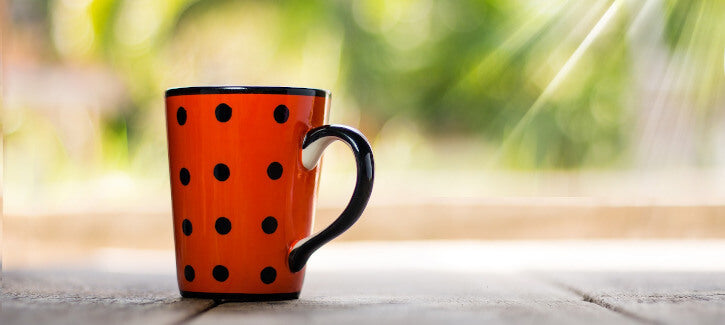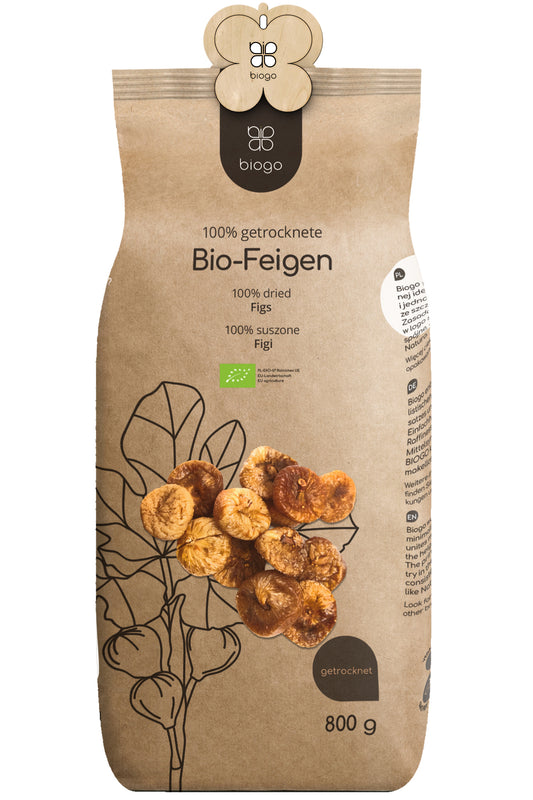- How is white tea made and where does it come from?
- White tea - health-promoting properties
- How do you prepare white tea properly?
- What does white tea taste like?
- White tea – who should drink it and why?
- Are there any contraindications to the use of white tea?
- The finest tea variety
Along with coffee, tea is the most consumed and most frequently chosen beverage among Poles. We drink it even more than the Japanese, and when it comes to its consumption in Europe, we are in third place. We prefer traditional black tea , usually with added sugar, perhaps with lemon. We choose green tea somewhat less often for reasons of health, a slim figure, and to delay the aging process - we know quite a lot about its beneficial effects on our body. The least interest in this country, which is a pity, is enjoyed by white tea , which is considered one of the noblest and most delicate varieties. What are the properties of white tea , what types are there, how should it be brewed, why is it worth consuming, and what effect can it have on our body? Let's check it out.
How is white tea made and where does it come from?
Traditional white tea is produced in China, but is now also produced in smaller quantities in other regions of Asia. Interestingly, the processing consists of just two simple steps: harvesting and drying. It makes white tea the least processed beverage of all teas, made from plants called Camellia sinensis (or Chinese tea). Interestingly, the white variety also differs from other teas in the way it is picked - only the buds covered in white fluff are collected, which are dried immediately after picking. Therefore, the processing of white tea is kept to a minimum. After the buds are harvested and dried in just a few days, it is ready to eat. The entire process is not rushed in any way and is completely natural.
White tea - health-promoting properties
White tea, among others, is the least processed. It is characterized by an impressive amount of valuable nutrients, vitamins, and trace elements, including:
- Vitamin C,
- Vitamin B3,
- Manganese,
- Fluorine,
- Antioxidants such as polyphenols and catechins.
White tea is a valuable source of antioxidants that slow the aging process. It also contains flavonoids that prevent the development of cardiovascular diseases and help reduce fatigue. Vitamin B3 (niacin) supports proper brain function. Regular consumption of white tea :
- has a stimulating effect,
- improves concentration and memory,
- helps reduce stress and tension,
- has anti-inflammatory and antifungal properties - among other things, it helps prevent the development of caries (as long as it does not contain sugar),
- regulates cholesterol levels,
- helps regulate blood pressure,
- reduces the risk of a heart attack,
- has a detoxifying effect,
- has a positive effect on the work of the circulatory system,
- delays the aging process of the body,
- accelerates metabolism, thereby supporting the burning of unnecessary fat tissue.
How do you prepare white tea properly?
White tea can be brewed at both high and low temperatures. You can safely brew the leaves at a temperature of around 90°C, then add one teaspoon of dried leaves to 200 ml of water and let the tea steep for 3 minutes. White tea can also be brewed at 70°C. This temperature is achieved by waiting about 6 minutes after the water boils. One teaspoon of tea is brewed with 200 ml of water, and the steeping time should then be slightly longer, i.e., 4 to 6 minutes.
What does white tea taste like?
White tea leaves have a delicate white-silver color, sometimes covered with a soft, velvety down. The resulting infusion takes on a light, slightly honey-colored hue. The taste of white tea is subtle, slightly sweet, and, unlike green tea, completely free of bitterness. Depending on the variety, you can detect floral-fruity or more herbal notes.
White tea – who should drink it and why?
Due to its vitamin C content and antiviral properties, white tea is recommended for autumn and winter, when we are most prone to infections and colds. Because it contains many antioxidants and helps lower "bad" cholesterol in the blood and raise "good" cholesterol, it is worth including in the daily diet of the elderly and those at risk of cardiovascular disease. It also helps strengthen bones, including teeth, prevents cavities, and improves gum health due to its antibacterial properties. Consumption in moderation is safe for people of all ages, including children.
Are there any contraindications to the use of white tea?
White tea: Due to its stimulating properties, it should not be consumed close to bedtime in the late evening. Too much of it before bedtime can cause insomnia. While drinking white tea infusion is safe for pregnant women, excessive consumption during this period can lead to a reduction in the absorption of folic acid, which is extremely important during pregnancy for the proper development of the child. Due to its high polyphenol content, white tea, if consumed in excess, can also contribute to disruptions in the proper absorption of vitamin B1 and iron.
The finest tea variety
The natural extraction of the white tea variety , as well as the fact that it is almost completely unprocessed, make its health-promoting properties, delicate taste and beautiful aroma one of the noblest varieties of this beverage. White tea is used not only in the food industry, but also in cosmetics and pharmacy. It is worth including it in your daily diet, between a cup of coffee in the morning and the traditional, well-known black tea. Depending on individual preferences, we can choose between pure white tea, Ceylon white tea, Bai Mu Dan (Pai Mu Tan) white tea , a blend of buds with the addition of larger leaves, or a version with additives, for example, white orange tea, white tea with raspberry tropical _ or with tea white with aloe .
THE PUBLISHER'S CHOICE
Dried dates 1 kg BIOGO
- €4,21
€4,95- €4,21
- Unit price
- / per
Almonds 1 kg BIOGO
- €11,69
€13,75- €11,69
- Unit price
- / per
Peeled sunflower seeds 1 kg BIOGO
- €3,04
€3,57- €3,04
- Unit price
- / per
Dried organic mango 400 g BIOGO
- €10,99
- €10,99
- Unit price
- / per
Dried White Mulberries 500 g ORGANIC
- €5,84
€6,87- €5,84
- Unit price
- / per
Popcorn (corn kernels) organic 1 kg BIOGO
- €5,84
- €5,84
- Unit price
- / per
Organic Ground Turmeric 500 g BIOGO
- €5,92
- €5,92
- Unit price
- / per
Organic cashew nuts 1 kg BIOGO
- €19,99
- €19,99
- Unit price
- / per
Milk thistle seeds 1 kg BIOGO
- €3,99
- €3,99
- Unit price
- / per
Dried organic figs 800 g BIOGO
- €30,12
- €30,12
- Unit price
- / per







































































































































